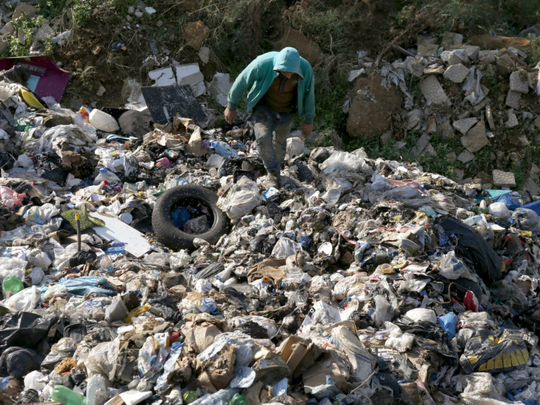
Beirut: As it approaches its cold and rainy season, Lebanon faces a genuine public health crisis six months after its unending garbage crisis. However, the emergence of the food and water-borne disease cholera in Iraq, and most likely in Syria, is posing a new direct threat as the country continues to grapple with the overwhelming number of Syrians who have escaped the war next door.
According to a recent Unicef report, cholera has already killed six people in Iraq and has spread to Syria and some Gulf countries as Shiite pilgrims return to their home countries.
Lebanon’s 1.8 million registered Syrian refugees (actual number far greater) struggle in extremely poor living conditions.
Makeshift camps house thousands where sewage and garbage is being burned or thrown into rivers. Health experts are now warning these practices can quickly become a breeding ground for dangerous diseases.
Widespread water contamination is a major concern because diseases like typhoid and cholera could quickly spread elsewhere.
Cholera is a bacterial infection and is carried in water as well as in faeces, and can be caught by drinking infected water, or by eating food that has been contaminated.
Given poor living conditions, people do not always wash their hands before preparing or eating food, which means that contamination can quickly turn into an epidemic.
The Ministry of Health has recently issued a series of ‘recommendations’ including a ban on burning waste and dumping garbage in rivers. However, the country is in dire need of new sewage facilities, particularly in refugee camps to prevent bacterial contamination of the entire country’s water system.
Before the trash crisis gripped Lebanon, which only concerned officials because of established business interests, few addressed its impact on the country’s already-frail health care system.
While experts dismissed the threat of cholera in major cities, including the capital where public awareness of basic hygiene was strong, they warned the disease could likely emerge in areas throughout the countryside.
Although garbage is being routinely collected from most street corners, makeshift landfills on vacant lots are creating small rotting “hills” which could soon be visible on satellite imaging.
Last week, the government set up a task force to deal with the garbage issue because of the growing threat of disease. But, with a political solution nowhere in sight, concerned citizens have taken matters into their own hands with some circulating leaflets warning of health dangers. Others have sent out messages on social media warning people not to eat in restaurants, avoid uncooked vegetables and to use wet towels instead of water to wash.
The World Health Organisation (WHO) has recently issued a warning to Lebanese authorities that it may face a range of health cases related to sanitation issues such as the proliferation of respiratory difficulties, headaches and even cancer.
It cited water pollution as a “major concern” especially as the rainy season approaches where streets in Beirut often turn into mini-rivers with uncollected garbage floating about.











